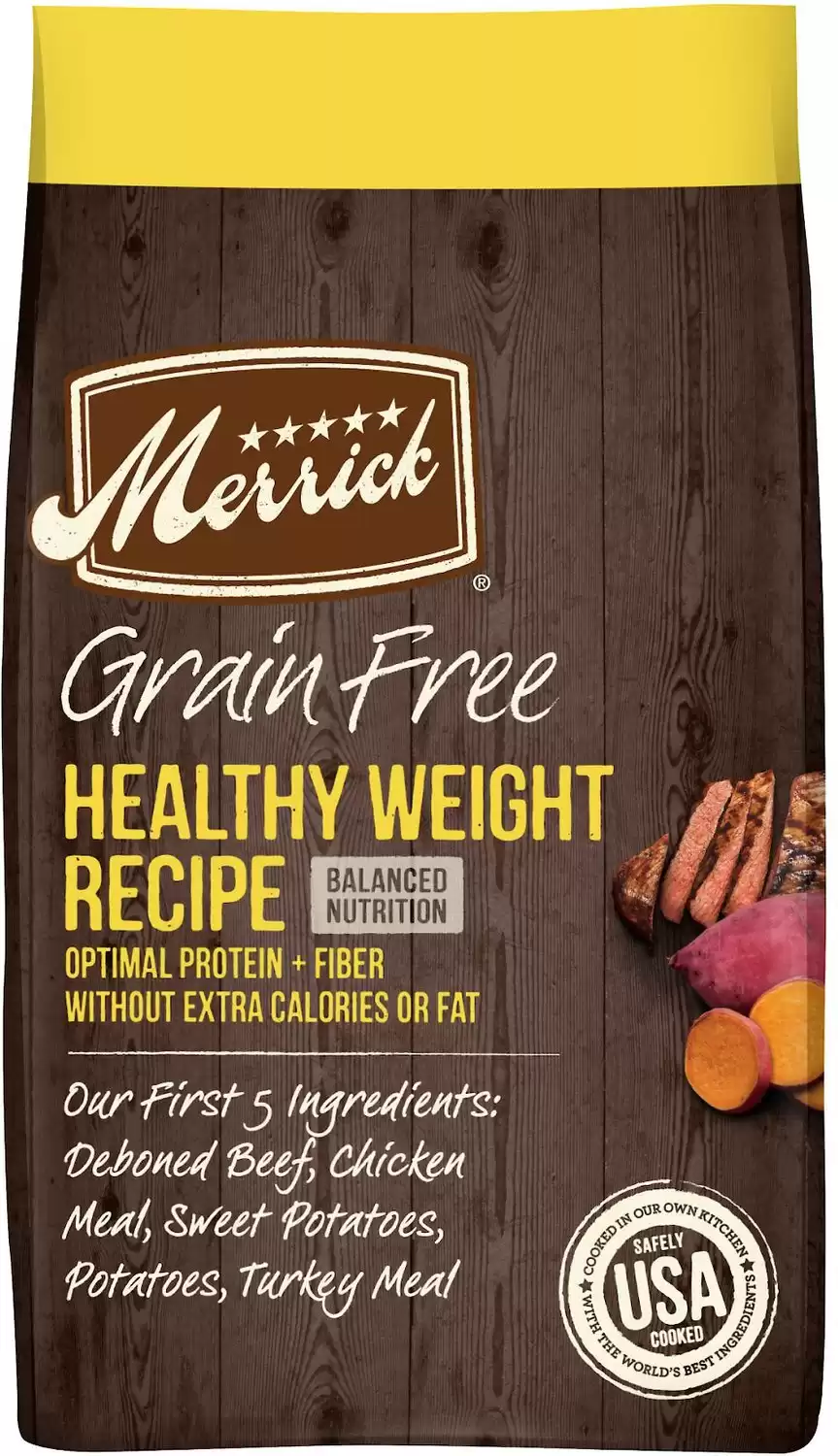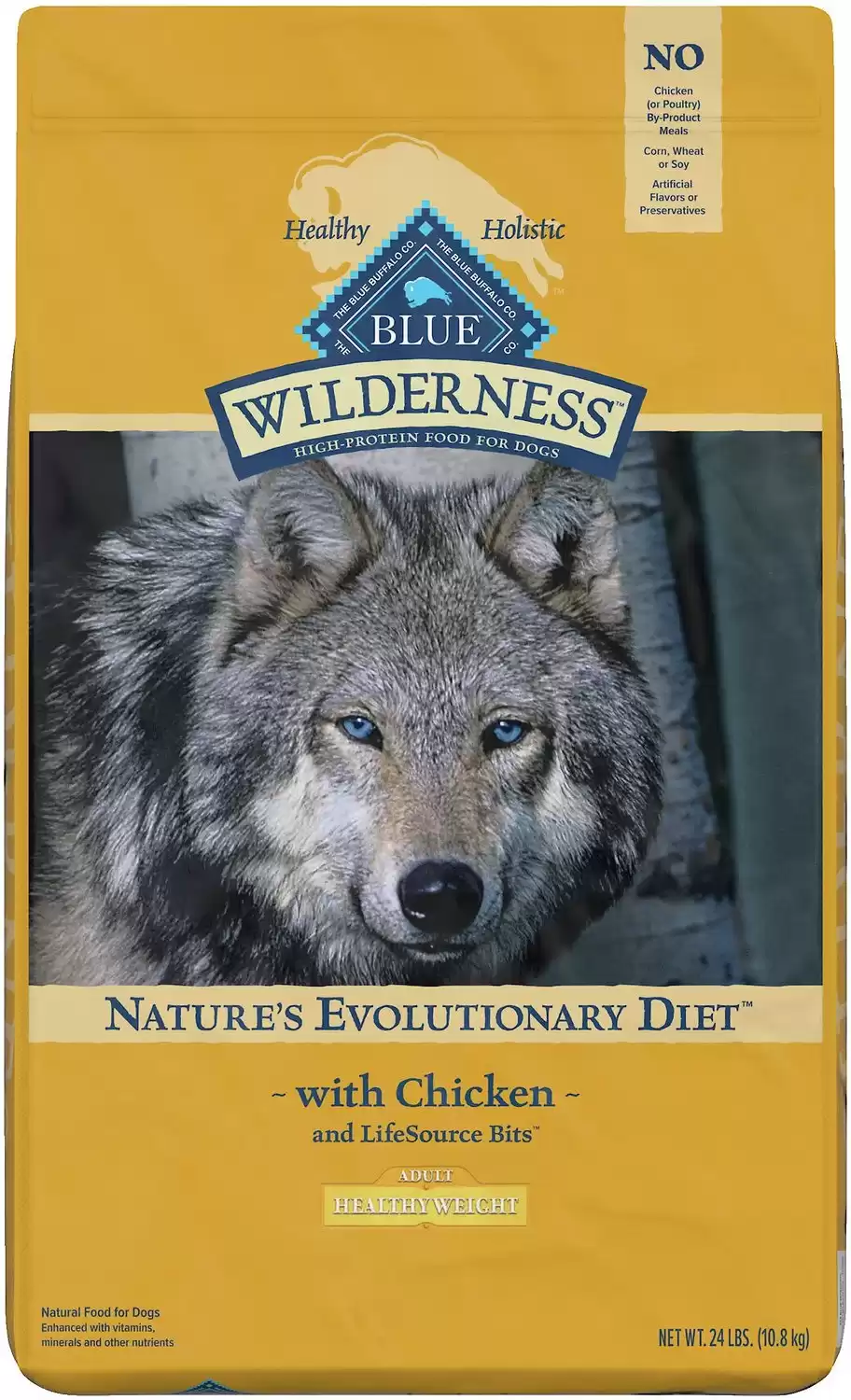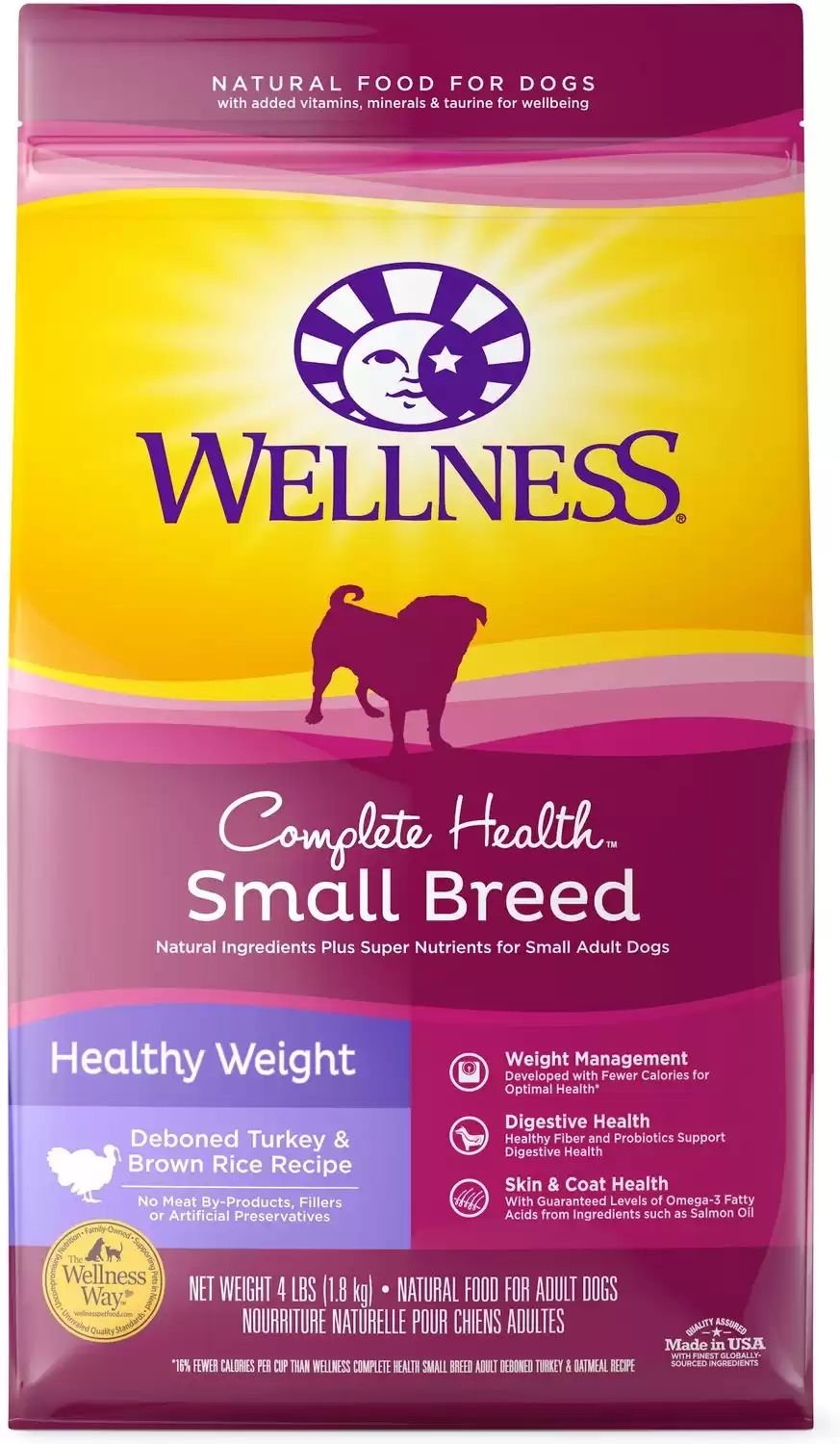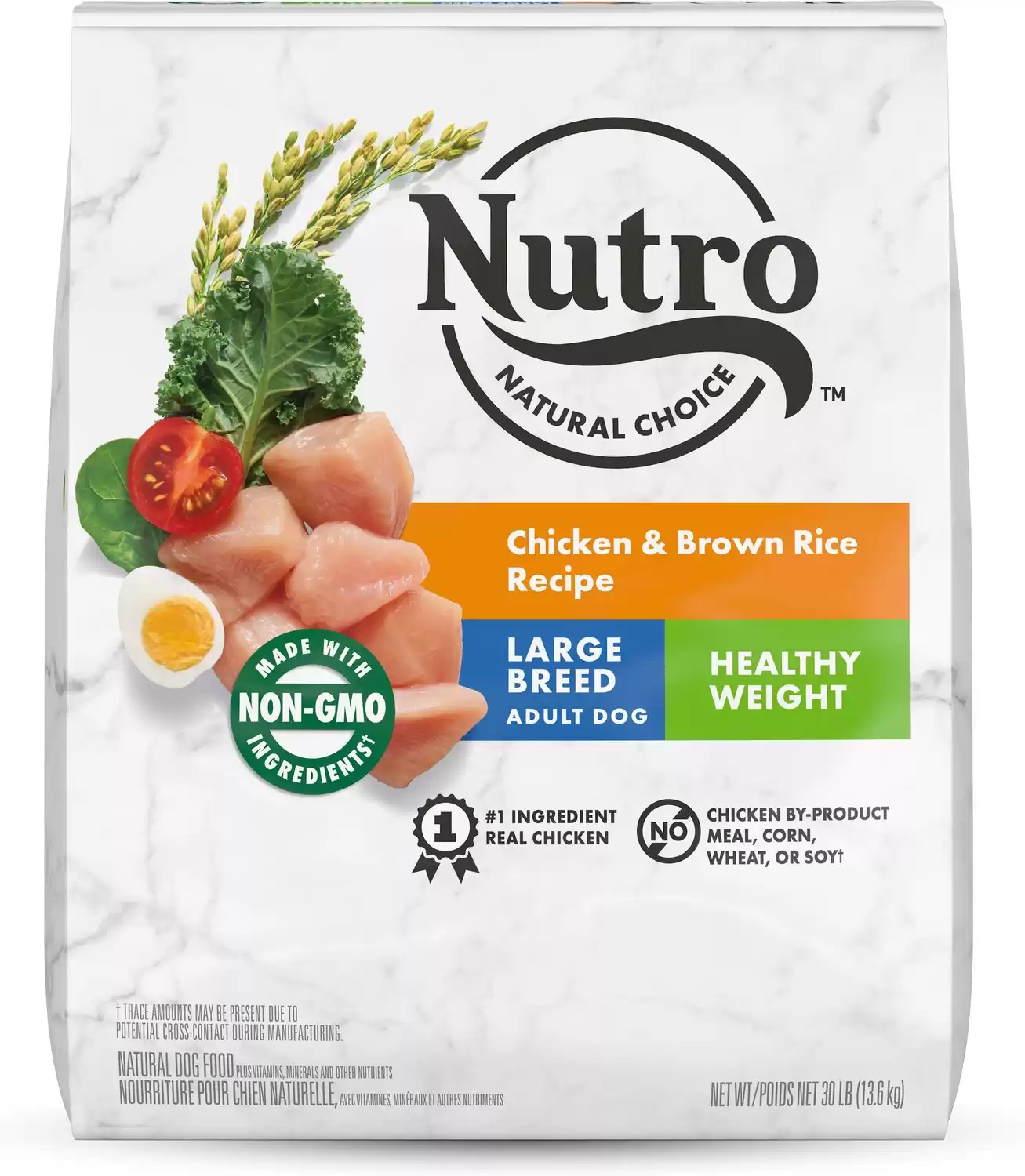Cheese is a yummy snack that many humans enjoy. There are so many varieties for all types of preferences. Some dogs seem to enjoy cheesy snacks as well, but is cheese good for dogs? Keep reading to find out.
Can Dogs Eat Cheese?
Yes, most dogs can eat cheese, and most of them love it! Little bites of cheese are a great treat to use for training, especially for dogs who are motivated by food. Some people use cheese as a clever way to disguise a pill inside a yummy treat. However, dogs should avoid cheese if they are overweight, have ever had pancreatitis, or have lactose intolerance.
- No additives, fillers or animal by-products
- All-natural ingredient list
- High-protein ingredients help dogs burn fat and stay satisfied
- Extra glucosamine soothes joints that ache from extra weight
- Probiotic ingredients aid in digestion
How Do You Know If Your Dog Is Lactose Intolerant?
After feeding your dog cheese or other dairy products, watch him closely for signs of digestive troubles. Symptoms of lactose intolerance in dogs include:
- Bloating
- Lack of appetite
- Lots of gas
- Diarrhea
- Vomiting
If you suspect your dog has lactose intolerance, stop feeding him cheese and consult your vet for advice on the best food and treats to give him.
How Much Cheese Can Your Dog Eat?
Many kinds of cheese are high in fat, which is why dogs who are already overweight should avoid eating it. Feeding your dog too much cheese can lead to weight gain and even obesity. If your dog is overweight already, check out our review of the top dog foods for weight loss!
In extreme cases, a diet that is too fatty could cause pancreatitis. This condition causes an inflamed pancreas, which can lead to repeated vomiting, diarrhea, abdominal bloating and a painful abdomen, a fever, and weakness. If pancreatitis is treated promptly, your dog has a good chance of making a full recovery. Call your vet immediately if you suspect this condition.
One cause of pancreatitis is a fatty diet in general, but it could also be caused by one extremely fatty meal. If your dog has ever had pancreatitis, don’t give her cheese. You will need to give your dog low-fat dog food after pancreatitis.
Because of these factors, it’s best to give your dog low-fat cheeses, and even then, give cheese in moderation. Types of lower-fat cheese include cottage cheese, goat cheese, and mozzarella.
- Ideal for older dogs who need to control their weight
- Nutrients include omega fatty acids from flaxseed and fish meal, which are beneficial to dogs' hair, skin, joints and eyesight.
- Chicory root is high in fiber to keep dogs satisfied longer
- High in protein
Are There Any Benefits to Feeding Your Dog Cheese?
Yes, cheese can be good for your dog, in moderation of course. Cheeses have important nutrients, including:
- Calcium
- Fatty acids
- B vitamins
- Vitamin A
Cheese is also high in protein, so it is good for a balanced doggie diet.
- A protein-packed ingredient list includes salmon meal, chicken meal and poultry
- Carbs include rice and oats, ideal for sensitive stomachs
- Omega fatty acids include flaxseed and salmon
How To Give Your Dog Cheese
Thinking of giving Fido some cheese? Follow these tips:
- Give your dog a small piece of cheese for the first time and then observe how she reacts for the next few hours to make sure there won’t be a reaction. If you give your dog a new type of cheese that she hasn’t had before, do the same thing.
- Don’t give your dog cheeses that contain garlic, chives, or onions, as those can be toxic for dogs.
- Avoid giving your dog spicy cheeses like pepper jack.
- Try making your dog work for the cheesy treat by hiding it under his normal food.
- Sprinkle cheese on top of a meal to make it more attractive.
- Remember: treats, including cheese, should make up no more than 10% of your dog’s daily caloric intake.
- Not sure about giving your dog cheese? Ask your vet for advice.
- Instead of giving your dog high-fat cheeses, try cheese-flavored dog treats.
- Avoid giving your dog options like cheesecake and cream cheese. These products have too much fat.
- Avoid giving your dog cheese-flavored human foods like Cheetos and cheese puffs.
- Don’t give your dog the rind of the cheese. Some of them contain mold that are toxic to dogs. Others have wax in them, which would not be good for your dog’s digestion.
- Great value for weight control dog food
- Wholesome ingredients include lentils, chicken and sweet potatoes
- Lamb and chicken provide amino acids and glucosamine, ideal for joints and digestion
Say Cheese
Cheese is a perfect treat for positive reinforcement training or just to let your dog know how much you appreciate him. Try giving a cheesy snack to your pup, in moderation, and see if he enjoys it as much as you do!
The photo featured at the top of this post is © iStock.com/igorr1
Ready to discover the top 10 cutest dog breeds in the entire world?
How about the fastest dogs, the largest dogs and those that are -- quite frankly -- just the kindest dogs on the planet? Each day, AZ Animals sends out lists just like this to our thousands of email subscribers. And the best part? It's FREE. Join today by entering your email below.
FAQs (Frequently Asked Questions)
Can Dogs Eat Cheese
Yes, most dogs can eat cheese, and most of them love it! Little bites of cheese are a great treat to use for training, especially for dogs who are motivated by food. Some people use cheese as a clever way to disguise a pill inside a yummy dog treat. However, dogs should avoid cheese if they are overweight, have ever had pancreatitis, or have lactose intolerance.
How Do You Know If Your Dog Is Lactose Intolerant?
After feeding your dog cheese or other dairy products, watch them closely for signs of digestive troubles. Symptoms of lactose intolerance in dogs include:
- Bloating
- Lack of appetite
- Lots of gas
- Diarrhea
- Vomiting
If you suspect your dog has lactose intolerance, stop feeding them cheese and consult your vet for advice on the best food and treats to give them.
How Much Cheese Can Your Dog Eat?
Many kinds of cheese are high in fat, which is why dogs who are already overweight should avoid eating it. Feeding your dog too much cheese can lead to weight gain and even obesity. If your dog is overweight already, check out our review of the top dog foods for weight loss!
Are There Any Benefits to Feeding Your Dog Cheese?
Yes, cheese can be good for your dog, in moderation of course. Cheeses have important nutrients for your dog including:
- Calcium
- Fatty acids
- B vitamins
- Vitamin A
Cheese is also high in protein, so it is good for a balanced doggie diet.
Thank you for reading! Have some feedback for us? Contact the AZ Animals editorial team.










